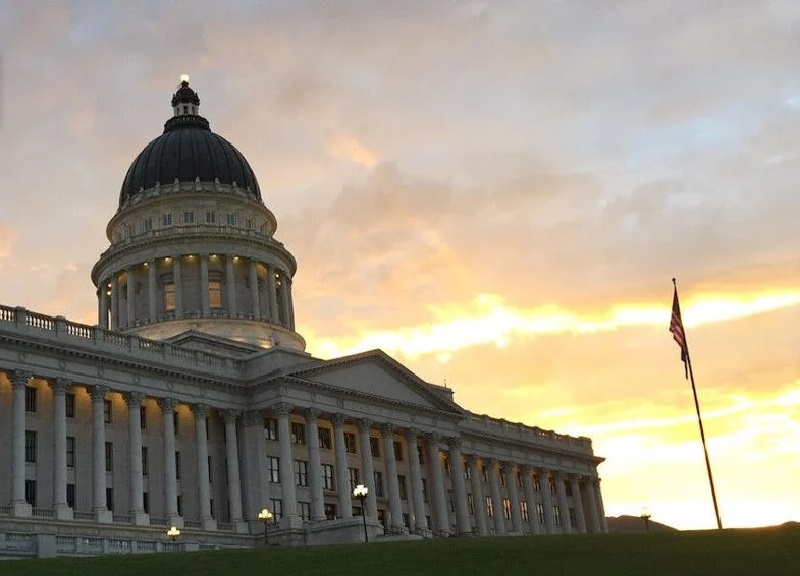Ogden, UT – Michael Slayton’s childhood was marked by instability, spending years bouncing from foster home to foster home. In total, he lived in 32 different foster homes and between 12 and 15 group homes for boys. This constant upheaval left him without a clear sense of identity or belonging, particularly as he tried to connect with his Native American heritage.
“I would have to explain to classmates that I am Native American, but I didn’t know who I was because I didn’t have a stable foundation,” Slayton said. “I grew up without a place of belonging, without a sense of fitting in, even though I tried. I never felt like I was truly part of something.”
Now an adult, Slayton has found his roots, learning about his Native American heritage and the traditions of his people. Determined to ensure that other children don’t experience the same disconnection he once did, Slayton is advocating for a bill that aims to protect Native American children in Utah’s foster care system.
On Thursday, Slayton joined dozens of Utah tribal community members at the State Capitol to rally in support of House Bill 30. The bill, introduced by House Minority Leader Angela Romero, seeks to codify the Indian Child Welfare Act (ICWA) into state law. ICWA is a federal law that prioritizes placing Native American children who are removed from their homes into foster care with other tribal members or in culturally appropriate settings, in order to help preserve their cultural identity.
“I think what we’re trying to do here is just protect Native children and make sure they stay within our communities and culture,” Romero said. “This bill is not new—it just makes sure that the Supreme Court’s ruling is reflected in Utah law.”
Despite the support from tribal communities, the bill has faced resistance. Some lawmakers have raised concerns that the bill is unnecessary, as the U.S. Supreme Court already addressed the issue in a recent ruling. House Speaker Mike Schultz commented that the issue was “duplicative” of federal action, suggesting that state lawmakers might not need to take further steps.
Tamra Borchardt-Slayton, a leader in the Paiute Indian Tribe of Utah and Michael Slayton’s wife, has been an active advocate for the bill. She pointed to the significant disparity in the number of Native American children in Utah who are removed from their homes. Despite making up only 1.6% of the state’s population, Native American children account for 4 to 6% of those placed in foster care.
“Native American children deserve to be placed in environments that honor their culture,” Borchardt-Slayton said. “This bill ensures that these children don’t lose their cultural identity, which can have a positive impact on their mental health and well-being.”
Supporters of the bill argue that keeping children connected to their culture can help them grow stronger mentally and spiritually. Elizabeth Pete, another advocate at the rally, emphasized the importance of ensuring that Native American children grow up with a sense of belonging.
“When they are placed with other tribal members or in environments where they can stay connected to their heritage, they know where they belong,” Pete said. “It helps them know who they are.”
Michael Slayton’s own journey of discovering his roots began when he turned 18, but he wishes he had been able to connect with his culture much earlier. “It wasn’t until I got older that I started learning my native language and traditions,” Slayton explained. “Being connected to your culture helps with mental health, spiritual health, and gives you a sense of where you belong.”
For many advocates of the bill, it’s about more than just fostering children—it’s about preserving Native American identity and ensuring that children are not lost to the system without the opportunity to understand and embrace their heritage. The future of House Bill 30 now lies in the hands of state lawmakers, who will ultimately decide whether or not to pass it into law.

